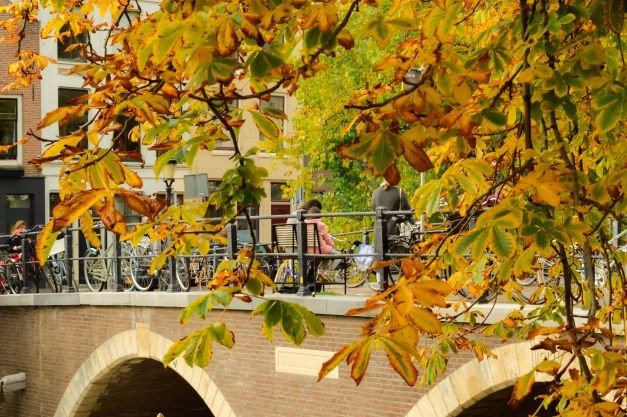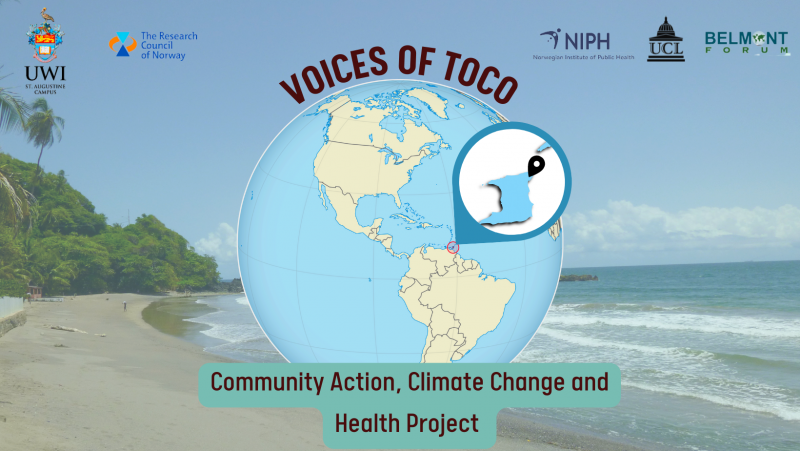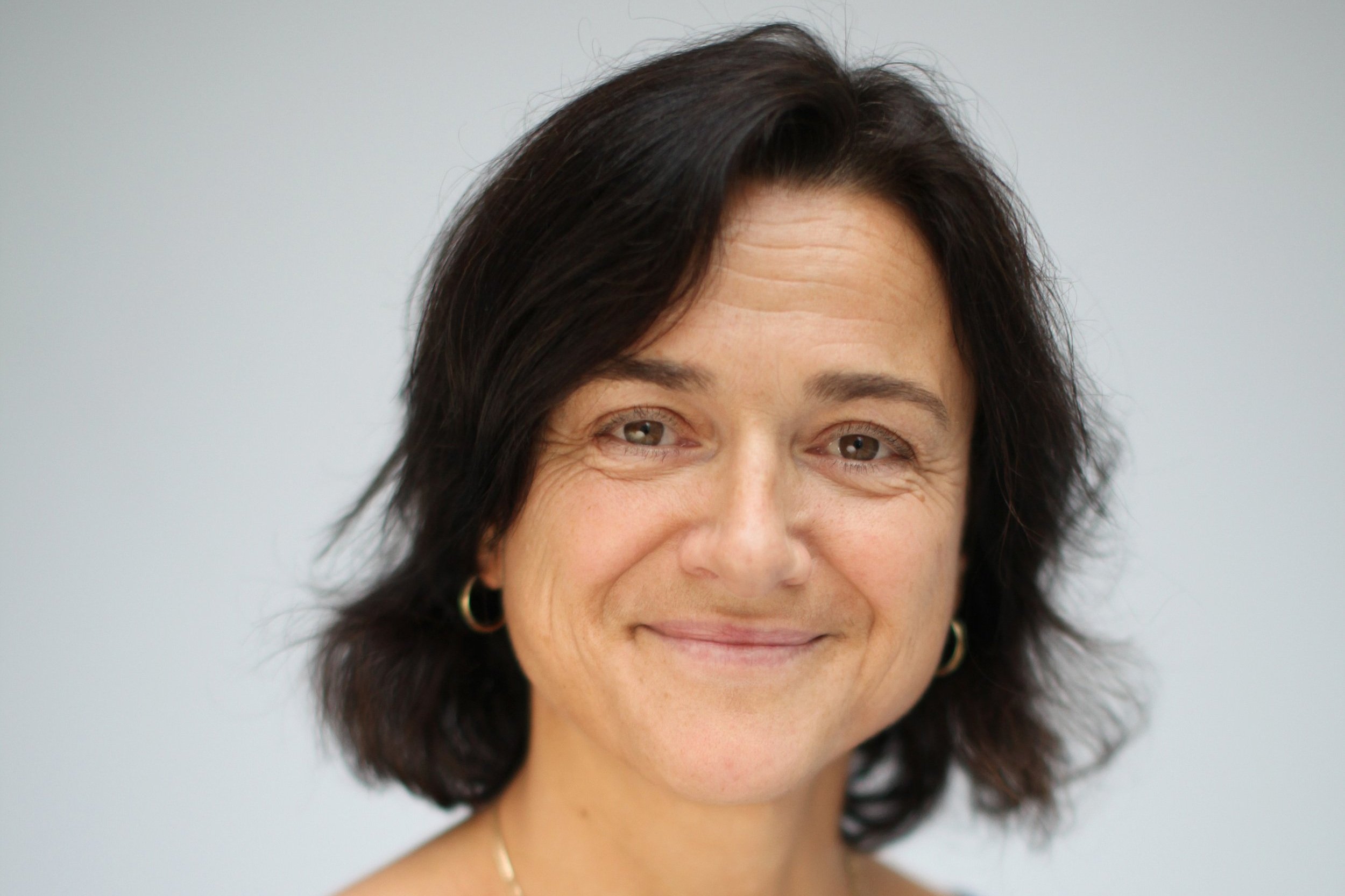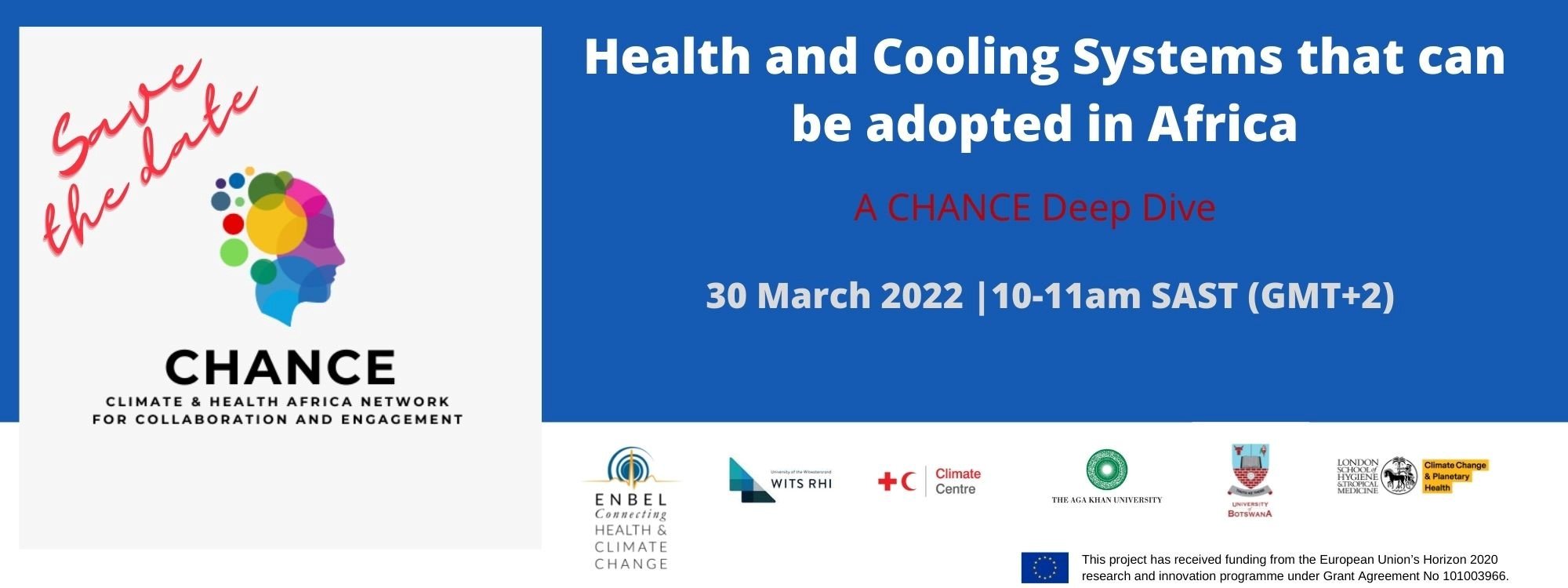
Events

Multidisciplinary session at EGU: Quantifying human health risks in changing climate
A call for abstracts to take part in the multidisciplinary session at the European Geosciences Union (EGU) General Assembly in April 2024 is now open.
To confront the intricate challenges of the close relationship between climate, environment, and health it is imperative to foster interdisciplinary collaboration among climate researchers, epidemiologists and public health researchers and social scientists. Fostering this collaboration is the primary goal of this session.

Workshop: Urban greenness, health and climate concerns
On 26 January, the University of Tartu, Karolinska Institutet, the Norwegian Institute for Nature Research and CICERO Center for International Climate Research organise a workshop addressing health concerns of urban greenness in perspective of climate change. We will discover the latest research findings and mitigation strategies to address health challenges from those disasters.

Workshop: Forest fires, health and climate concerns
On 6 December, the University of Tartu, Umea University, Finnish Meteorological Institute (FMI), the Swedish meteorological and hydrological institute (SMHI) and CICERO Center for International Climate Research organise a workshop addressing health concerns of forest fires in perspective of climate change. We will discover the latest research findings and mitigation strategies to address health challenges from those disasters.

Workshop at the 16th European Public Health Conference 2023: Evaluating progress in adaptation in the European public health sector
The workshop aims to support evidence translation for adaptation that prioritises health protection and equity.

Workshop: Climate justice and health inequalities
Workshop: Climate justice and health inequalities
The UNESCO Chair in Ethics, Science and Society (Toulouse University, contact: E. Rial-Sebbag) and the Centre for Epidemiology and Research in Population Health (CERPOP- Inserm, University of Toulouse III, contact: L. Mabile) will organise a workshop addressing some aspects of climate justice and health inequalities.
Date: 11th of October, 15.30-17.30
Online workshop, free, registration required before Oct 10th, 2023
Registration form:
https://framaforms.org/enbel-workshop-climate-justice-and-health-inequalities-1695732535
The link to the workshop will be sent to all registrees on the day before.
Speakers:
Prof Christian Byk is an honorary judge at the Court of appeal (Paris) and an associate researcher at the Institute of legal and philosophical studies of the Sorbonne (Paris I University).
Dr Claire Lajaunie, researcher in environmental law at the French National Institute of Health and Medical Research at the LPED –Population-EnvironmentDevelopment Laboratory in Marseille, France. She is Affiliate Researcher at the Strathclyde Centre for Environmental Law and Governance.
Dr Laurent Ravez is a philosopher and a bioethicist and a full professor at the University of Namur (Belgium) in the Faculty of Science. He is the current Director of the Centre for Bioethics at the University of Namur (CBUN).
Chairs:
Dr E. Rial-Sebbag and Dr L. Mabile from CERPOP (Centre d’Etudes et de Recherche en Santé des Populations), INSERM, Université Toulouse III Paul Sabatier, France.
Download the programme for the workshop.
This worshop is part of the ENBEL conference on Connecting Health and Climate Change bringing together researchers, experts, policy makers, NGO and private sector representatives, from all career stages. It will provide an arena to present research findings and discuss climate change effects on health, adaptation, societal consequences, and opportunities for climate resilient development.
The conference will take place in Stockholm 11-12 October 2023 with possibility for remote attendance.
Further information on topics to be covered, keynote speakers, programme and registration details can be found on www.enbel2023.se.
We hope you will be able to attend this workshop and/or conference. Please feel free to share this information further in your networks and projects.
Conference on connecting health and climate change
Climate change is already impacting health in multiple ways and is undermining determinants for good health, such as clean air and water, food, safe shelter, and economic opportunities. The transdisciplinary conference on Connecting Health and Climate Change brings together researchers, experts, policy makers, and NGO and private sector representatives, from all career stages. It provides an arena to present research findings and discuss climate change effects on health, adaptation, societal consequences,and opportunities for climate resilient development.
Further information on topics to be covered, keynote speakers, programme and registration can be found on www.enbel2023.se.
It is possible to attend the conference both in person and online. See details on registration on the website.
Check this page for more updates.

Policy conference: Health impacts of climate change: Advancing the European adaptation agenda to 2030
Welcome to our policy conference in Brussels 19 September 2023.

2nd CHANCE Network Conference in Botswana - On Climate Change and Health in Africa: Accelerating Climate Adaptation & Policy Development for Health in Africa
The 2nd #CHANCENetwork Conference will take place 24th & 25th August 2023 at Protea Hotel (Masa Sqaure) in Gaborone, Botswana. The conference is hybrid, with option to attend in person & virtually.

Novel climate change and health research
On 26 May, the ENBEL project (Enhancing Belmont Research Action to support EU policy making on climate change and health) organises an event entitled Novel climate change and health research.

GPHW2023: Connecting the Dots: New Climate Change and Health Research
ENBEL is joining the Global Public Health Week 2023 (#GPHW2023) to raise awareness of health impacts of climate change and the research taking place in the ENBEL network of climate change and health research projects.

Health adaptation to climate change in Africa: Unpackaging results from a stakeholder mapping exercise in East and Southern Africa
Climate change is already affecting the health of populations in Southern and Eastern Africa and there is an urgent need to develop adaptation strategies. This presentation will discuss the adaptation priorities for the health sector from a document review of national adaptation policies in countries in East and Southern Africa.

Presentation: Public Health Measures to Address the Impact of Climate Change on Population Health-Proceedings from a Stakeholder Workshop
ENBEL researchers Debbi Stanistreet and Samira B. Jabakhanij from the Royal College of Surgeons in Ireland (RCSI) will present at the 2022 Joint North-South Public Health Conference in Ireland 30 November 2022.

Plenary speech at the 2022 HEAL conference Transformational Change for Environmental, Planetary, and Human Health
ENBEL project coordinator Kristin Aunan, research director at CICERO Center for International Climate Research is a speaker at the HEAL 2022 conference Transformational Change for Environmental, Planetary, and Human Health organised by the Healthy Environments And Lives (HEAL) Network in Australia.

Advancing African Climate Change & Health Policies and Networking, side event at WHO Health Pavilion at COP27
ENBEL and the CHANCE network in partnership with WHO AFRO and the Clim-Health network is organising a side event at the WHO Health Pavilion at COP27 15 November 2022.

Climate change and women’s health at the WHO Health Pavilion at COP27
This session will be an interactive discussion exploring how climate change is affecting women’s health in Sub-Saharan Africa. We will unpack ongoing research on this topic and examine solutions that can be implemented to address these differences.

Presentation of ENBEL library of learning material and training courses at Urban Transitions 2022
Education on climate change and health – the ENBEL library will be presented by Triin Veber from the University of Tartu at the Urban Transitions 2022 conference 10 November 2022.

Launch of videos on community action, climate change and health in Toco, Trinidad
Welcome to the launch of videos on communitiy action, climate change and health in Toco, Trinidad.

Climate change, heat and maternal health: estimating current and future burdens
The CHAMNHA project is organising the symposium Climate change, heat and maternal health: estimating current and future burdens at the 34th Annual Conference of the International Society for Environmental Epidemiology

CHANCE network meeting: Unpacking the South African Heat Health Action Guideline
The CHANCE network are honored to have the Deputy Director at the National Department of Health in South Africa, Ms. Bono Nemukula talking about "Unpacking the South African Heat Health Action Guideline" at the next CHANCE Network virtual workshop 21 September 2022.

The project EXHAUSTION – Heat and air pollution effects on cardiopulmonary mortality and morbidity: geographical variability and vulnerable groups in Europe
The EXHAUSTION project is organising the symposium The project EXHAUSTION – Heat and air pollution effects on cardiopulmonary mortality and morbidity: geographical variability and vulnerable groups in Europe at the 34th Annual Conference of the International Society for Environmental Epidemiology.

Africa Regional Resilience Hub: Dealing with extreme heat in African Cities: what does it take?
The CHANCE Network and the University of Botswana is organising a session at the Africa Regional Resilience Hub 19 September Dealing with extreme heat in African Cities: what does it take?

Heat stress and air pollution - two sides of the same coin
ENBEL coordinator and research director Kristin Aunan from CICERO will take part in the key note panel on Climate change and health 19 September at the 34th Annual Conference of the International Society for Environmental Epidemiology (ISEE2022) in Athens, Greece.

Workshop: External costs of climate change
University of Tartu and the ENBEL project is organising a workshop on external costs of climate change for policymakers and stakeholders. A limited number of participants can join online.

ENBEL General Assembly 2022
The first in-person ENBEL General Assembly will be organised in Tallinn, Estonia 7-9 September 2022.

CHANCE Conference: Advancing African Climate Change and Health Policies and Financing
The CHANCE Network on Climate Change and Health in Africa is meeting in South Africa for the CHANCE Conference: Advancing African Climate Change and Health Policies and Financing
Interventions to reduce the impacts of extreme heat on health in Africa: a set of case studies across the continent and an interventional framework
ENBEL and partners organise a session named “Interventions to reduce the impacts of extreme heat on health in Africa: a set of case studies across the continent and an interventional framework” at the Sustainability Research and Innovation Congress 2022 (SRI2022) held online and onsite in Pretoria, South Africa, June 20-24, 2022.
Extreme heat is already having major impacts on health in Africa, especially in vulnerable groups such as pregnant women, newborns, urban populations in informal areas, and outdoor workers. While evidence is accruing on heat-health impacts in Africa and modelling studies are beginning to document the likely size of future health impacts with global warming, little research has been done on which interventions can reduce these impacts. Of particular note, no interventions have assessed whether interventions can reduce the impacts of heat exposure on maternal and newborn health, of evaluated the effectiveness of passive housing adaptation technologies such as ‘’cool roofs’’. Identifying effective interventions is urgent as this information could inform research prioritisation and services programming as additional climate financing becomes available. This session reports findings from studies set in five countries across Africa that are amongst the first studies on heat adaptation on the continent, specifically a behavioural change interventions to reduce heat impacts, ‘’cool roof’’ interventions, water availability in schools in areas with hot climates, and an Early Warning System that centres around Indigenous practices to reduce heat burden. These examples of interventions illustrate the ability of translating knowledge generated into solutions that involve the public and private sector, as well as researchers and communities. Taken together, the body of knowledge presented in this session has the potential to guide future research actions and inform initiatives to scale-up packages of adaptation solutions to reduce heat-health impacts that span behavioural changes, Indigenous practices, access to cool water, and passive cooling technologies in households and health facilities. Intersections of these interventions with mitigation initiatives are also discussed. Finally, we present a framework for classifying interventions and an approach to selecting an optimised package of services in different settings.
Speakers:
Siphesihle Maseko, Session Host, Team SRI
Caradee Wright, Chief Specialist Scientist, SAMRC (ENBEL)
Ijeoma Solarin, MPH, Researcher, Wits RHI
Vincent Pagiwa, Research Fellow, University of Botswana (ENBEL)
Jan Hugo, Dr, Lecturer/Researcher, University of Pretoria
Gloria Maimela, Director Wits RHI
More information and registration
Sustainability Research & Innovation Congress 2022: Transdisciplinary research for climate and health: lessons learned on co-design in the Belmont Forum CEH projects
Climate, Environment and Health (CEH) projects were funded by the Belmont Forum to undertake interdisciplinary and transdisciplinary research to describe complex climate, ecosystem and health pathways and inform planning and enhance resilience for health adaptation. CEH-funded research outputs aim to improve preparedness and response to climate’s impacts on human health, and support climate services, prevention, adaptation or development measures that provide significant population health benefits.
This session will review progress in the projects in co-design with stakeholders and engagement of the end users of their research. A range of case studies from the CEH projects, which have been running for more than 2 years, will be presented, illustrating a variety of settings, health topics and methods/approaches to co-design.
Case studies include:
working with farmers in Nepal on nutrition (MICRO-POLL);
working with health workers and women in Kenya and Burkina Faso on reducing the impacts of extreme heat (CHAMNHA);
working with communities to manage extreme weather events (CCCEHN);
working with the health sector in Taiwan (AWARD-APR) and
working with farmers and employers to develop research on occupational heat stress (PREP).
We will reflect on the lessons learned from these case studies and identify common themes to inform future researchers and research funders.
This event is organised by the ENBEL project that aims to synthesise the findings of the CEH projects for stakeholders who work on climate and health.
Chair: Sari Kovats, Associate Professor, London School of Hygiene and Tropical Medicine
Speakers:
Amanda Shores, AAAS S&TP Fellow, Belmont Forum, NSF, Future Earth US Hub
Liz Rowse, Senior Programme Manager, NERC-UKRI
Ilan Kelman, Professor of Disasters and Health, University College London and University of Agder (CCCEHN)
Thomas Timberlake, Post-Doctoral Research Associate, University of Bristol (MICRO-POLL)
Heath Prince, Director and Research Scientist, Ray Marshall Center, UT Austin (PREP)
Ilana Weiss, Senior Director of Public Health & Policy, La Isla Network (PREP)
Yu-Chun Wang, Professor, Chung Yuan Christian University (AWARD-APR)
Kadidiatou Kadio, Reseacher, Institut de Recherche en Science de la Sante (IRSS) (CHAMNHA)
Adelaide Lusambili, Assistant Professor, Aga Khan University (CHAMNHA)
MORE INFORMATION AND REGISTRATION

Kick-off event European Public Health Climate&Health day: Climate change affects our health
Join us to discuss and learn more about the health effects of climate change as we kick off the climate and health day of the European Public Health Week 2022!
Webinar: Update from the IPCC WGII report findings on health by Lead Author Kathryn Bowen
Prof. Kathryn Bowen from the University of Melbourne will give an update from the IPCC WGII report chapter 7 on human health, wellbeing and the changing structure of communities.
Members of the ENBEL consortium contributing to the IPCC WGII report Matthew Chersich and Joacim Rocklöv will comment from their perspectives.
See the recording of the webinar here.

Health and cooling systems that can be adopted in Africa - CHANCE workshop
The next workshop in Climate Health Africa Network for Collaboration and Engagement (CHANCE) will take place 30th of March 2022 10-11 AM SAST.
The topic of discussion will be "HEALTH AND COOLING SYSTEMS THAT CAN BE ADOPTED IN AFRICA".
WORKSHOP AGENDA
MC: Dr. Vincent Pagiwa (University of Botswana, Botswana) & Caroline Muthoni (Aga Khan University, Kenya)
Opening and welcome (MC) 2 min
Interactive introductions (Bettina Koelle) 8 min
Keynote address: Health and Cooling Systems in Africa
An integrative approach to climate-proofing South African towns (Dr. Caredee Wright) 10 min
The use of "Cool roofs" in improving health in Africa, learning from the experience of Nouna in Burkina Faso. (Dr. Aditi Bunker) 10 min
Discussion by members (interactive) 20 min
Next steps 5 minutes
Closure
For more information and interest in joining the network, please contact: Dr Vincent Pagiwa (vpagiwa@ub.ac.bw)


